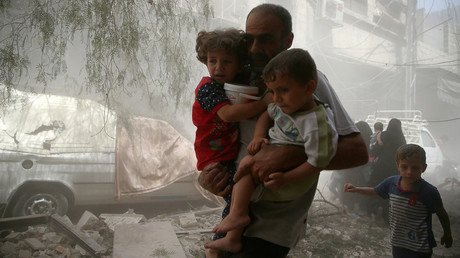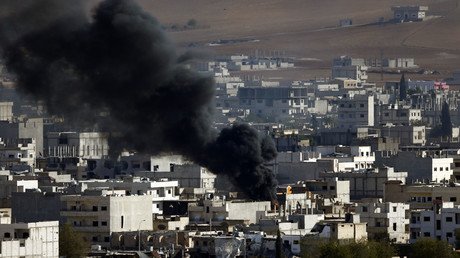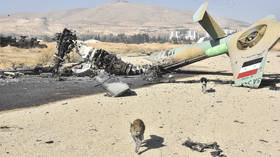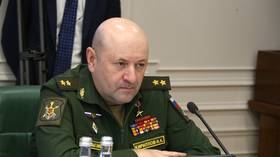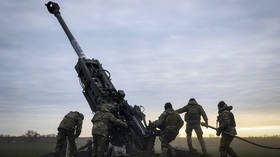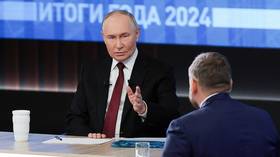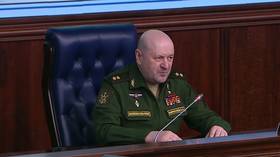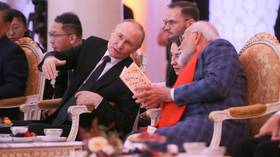‘PsyOps to build case against Assad’
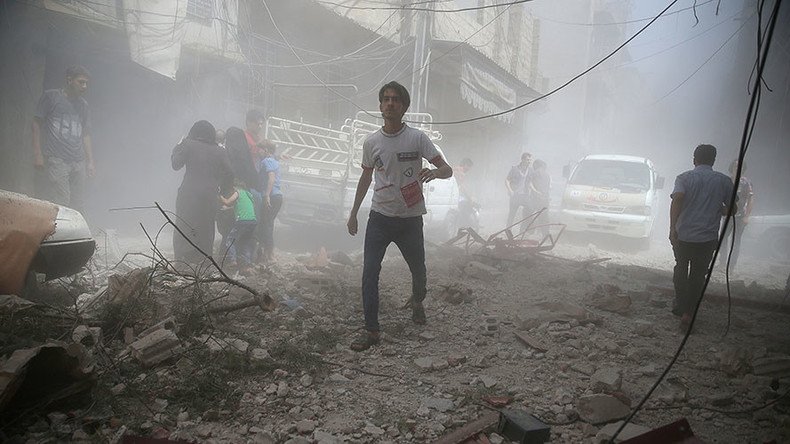
The West doesn’t want to acknowledge it enabled, and sometimes directly supported, groups in Syria that use chemical weapons as a pretext to put the onus for this on the Assad government, says retired CIA and US State Department official Larry Johnson.
A joint investigation by the UN and the Organization for the Prohibition of Chemical Weapons (OPCW) accuses the Syrian government of carrying out two chemical weapons attacks in the past two years, as well as ISIS for using mustard gas in one of them.
RT: Commenting on the UN report, Washington said Assad must be held to account. But why did the US remain silent when so-called moderate rebels admitted carrying out a chemical attack in April this year, in Aleppo?
Larry Johnson: The real problem with the chemical weapons - I call them ‘so-called chemical weapons’ - is that it has been almost entirely the rebels and not the government. The Syrian government had binary chemical weapons. And a binary weapon means you have to mix two separate components together in order to create a lethal agent. Those weapons were collected and disposed with the assistance of Russia. Those weapons have been taken off the battlefield.
What the West doesn’t want to acknowledge is the fact that we have enabled, and in some cases directly supported, groups in Syria that have …[used] chlorine, and other chemicals – mustard gas – as a pretext to put the onus of this on the government of Bashar Assad. This is all being carried out as what I call a psychological operation, a psyops campaign, designed to shift public attention and public opinion in order to build a case to go after Bashar Assad. In fact, the real culprits here – the ones that represent the danger - and the intelligence community knows this – are the rebels, particularly al-Nusra and ISIS.
RT: No perpetrator was identified in six of the nine chemical attacks investigated. Do you think we can speculate who was behind them, or ever indeed find out the truth about who carried out these attacks?
LJ: That’s deliberate ignorance on the part of the UN. Both the US and the Israeli intelligence agencies monitor real time the chemical units, the military units, in Syria that have the chemical weapons capability. Why? Because when those units activate and start preparing – it is designed, from the standpoint of Israel, to have prior warning that something like this would happen. You’ve not seen any evidence whatsoever of any kind of prior activity.
This is not a magical capability – the Syrian army just doesn’t roll out bed and then wave its hands and have a cloud of gas erupt. It is, if you will, deliberately averting the eyes of the UN from the rebels that have been involved with this. And they have been able to carry it out with the assistance, specifically of Turkey in the past. Turkish intelligence agencies in the past were providing direct support to rebels in Syria. They were in turn carrying out these kinds of operations.
Every violation of international law – including chemical or any other illegal weapons - should be treated equally and condemned by the international community no matter who committed it, says Daoud Khairallah, Professor of International law at Georgetown University. However, he adds, the UN has been “reluctant to investigate of chemical weapons [usage] from the beginning of the violent events in Syria”.
“The problem that we’ve faced is this selective attitude [regarding] what events, what violations of international law we should investigate, and what we shouldn’t,” he told RT.
“The US considers that Assad is responsible for anything: he is a serial killer… he is the one to get rid of. This gives the US a license to interfere into internal affairs, violate all kinds of international norms including the UN Charter. [The US] thinks that this is the way it should be done, and God has given them the right to do that,” he said, adding that “Other countries do the same when they have the opportunities.”
“Lopsided justice is not justice. Law that is not applied consistently, fairly, and competently is not law,” Prof. Khairallah said.
The statements, views and opinions expressed in this column are solely those of the author and do not necessarily represent those of RT.
